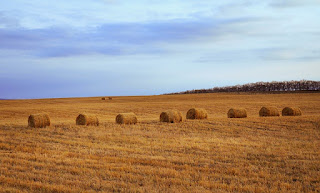Blog provides NCERT solutions, CBSE, NTSE, Olympiad study material, model test papers, important Questions and Answers asked in CBSE examinations. References to Educational Sites and resources.
Thursday, 3 December 2015
Tuesday, 1 December 2015
CBSE Class 7 - Geography - CH 10 - Life in the Deserts (NCERT Solutions)
Life in the Deserts
 |
| Monastery in Ladakh Region photo credits: MartinPosta |
NCERT Chapter 10 Textbook Solutions
Q1: What are the two types of deserts found in the world?
Answer: Hot Deserts and Cold Deserts
Q2: In which continent is the Sahara desert located?
Answer: It is located in northern part of Africa continent.
Q3: What are the climatic conditions of the Ladakh desert?
Answer: Ladakh climate is extremely cold and dry. During summer the temperature varies from 3° C to 30° C and in winters it ranges from -20° C to -35° C
Q4: What mainly attracts tourists to Ladakh?
Answer: Trekking, Monasteries and adventure tourism mainly attracts people visit Ladakh.
Q5: What type of clothes the people of the Sahara desert wear?
Answer: Heavy robes to protect against heavy winds and wind storms.

Sunday, 29 November 2015
Thursday, 12 November 2015
CBSE Class 8 - Science Ch 13 - Sound (Worksheet)
Sound
Worksheet
 |
| Prolonged Use of Headphones and loud music can make you deaf |
Write True or False for the senses given below. Also rewrite the false statements correctly:
1. Sound is a mechanical wave.
______________________________________________________
2. Sound can travel through vacuum.
_______________________________________________________
3. Sound is produced by a vibrating body.
_______________________________________________________
4. The maximum displacement of a body from its mean position is called amplitude of oscillation.
________________________________________________________
5. Loudness of a sound is measured in Hertz.
_______________________________________________________

Wednesday, 4 November 2015
CBSE Class 10 - Physics - Reflection of Light By Plane and Spherical Mirrors (V Short Q and A)
Reflection of Light By Plane and Spherical Mirrors
 |
| Laughing Mirrors use combination of Spherical Mirrors and Plane Mirrors. Is this image real or virtual? |
Very Short Question Answers (Based on NCERT Chapter)
Q1: What is the position of the object, when we get a diminished image with a concave mirror?
Answer: Beyond C (centre of curvature)
Q2: What are Marginal rays?
Answer: The rays which strike the mirror surface near the periphery are called marginal rays.
Q3: What type of rear mirrors are used by drivers in automobiles?
Answer: Convex mirrors
Q4: What is the relation between the radius of curvature (R) and focal length (f) of a concave mirror?
Answer: R = 2f
Q5: What is a focal length in case of spherical mirrors?
Answer: It is the distance between focal length and focus.
Q6: An object is moving with a speed v towards a plane mirror, what is the speed of the image?

Tuesday, 3 November 2015
CBSE Class 7 - Geography - CH 9 Life In The Temperate Grasslands (NCERT Solutions)
Life In The Temperate Grasslands
NCERT Chapter Solutions
 |
| Prairies - Temperate Grasslands in USA |
Q1: What are the Temperate Grasslands of North America called?
Answer: The temperature grasslands of North America are called Prairies.
Q2: What are the cattle farms in the North American Grasslands known as?
Answer: The cattle farms in North America are known as Ranches.
Q3: Name the rivers that drain the Velds.
Answer: The tributaries of rivers Orange and Limpopo drain the Velds.
Q4: When is the rainy season in the Velds?
Answer: In the summer month from November to February.
Q5: What is the major occupation of the people of the South African grasslands?
Answer: Sheep rearing

Sunday, 18 October 2015
CBSE Class 8 - Science - CH 15 - Some Natural Phenomena (Worksheet)
Some Natural Phenomena
 |
| Tsunami hits at San Jose: picture by Angela Riddock |
Worksheet based on Class 8 NCERT Chapter 15
Fill in the blanks with appropriate words given below:
seismograph, Ritcher scale, static, earthquake, positive, earthing, thunder, Like charges, seismic waves, unlike charges, electroscope
1. _______ electricity consists of electric charges which do not flow.
2. A glass rod when rubbed with a piece of silk cloth gets charged with ________ charge.
3. Seismic waves are recorded by an instrument called ____________.
4. An explosive sound heard during lightning is termed as _________.
5. _____ _______ repel each other while ______ _______ attract each other.

Subscribe to:
Posts (Atom)
